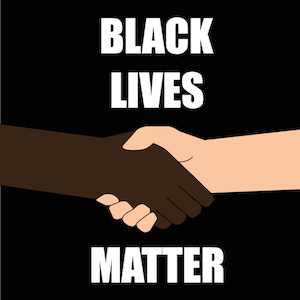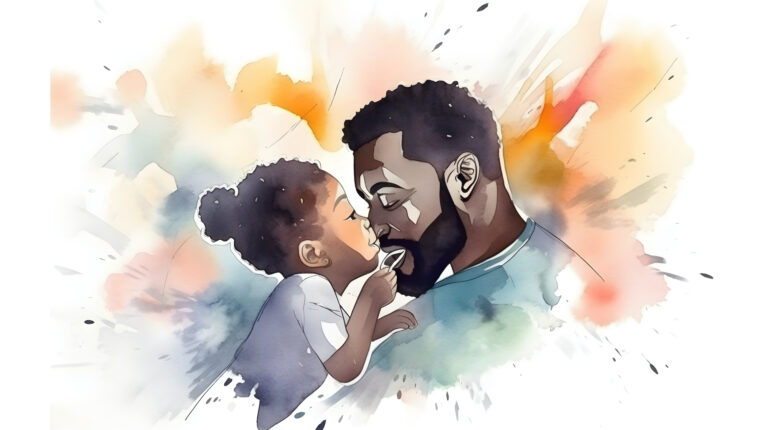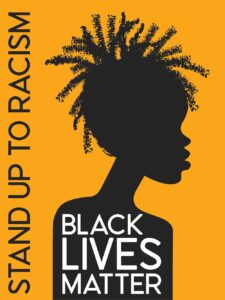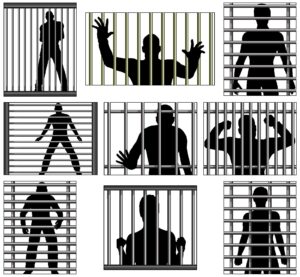
Living While Black in America

The lives of black people in the United States have seen both progress and setbacks over the past decade. Some areas of improvement include:
- Political Representation: In recent years, there has been an increase in the number of black elected officials at the local, state, and national levels. For example, in 2020, a record number of black women were elected to Congress, including Kamala Harris, who became the first black woman to be elected as Vice President of the United States.
- Criminal Justice Reform: There has been growing recognition of systemic racism within the criminal justice system and efforts to address it. For example, in 2018, the First Step Act was passed, which aimed to reduce mandatory minimum sentences for nonviolent drug offenses and expand rehabilitation programs for federal prisoners.
- Economic Opportunities: The black unemployment rate has reached historic lows in recent years. According to the Bureau of Labor Statistics, the black unemployment rate was 5.9% in April 2019, which was the lowest rate since the government began tracking this data in 1972.
However, there are still many areas in which the lives of black people have not improved over the past 10 years, and in some cases, have worsened. For example:
- Racial Disparities in Health Outcomes: Black people continue to experience higher rates of many health problems, including hypertension, diabetes, and maternal mortality.
- Police Brutality and Systemic Racism: The deaths of George Floyd, Breonna Taylor, and many other black people at the hands of police officers have highlighted the ongoing problem of police brutality and systemic racism within law enforcement.
- Wealth Inequality: The wealth gap between black and white households has widened in recent years, with the median net worth of white households being 10 times higher than that of black households, according to a 2019 study by the Federal Reserve.

The reality of being Black in America today is complex and multifaceted.
Black Americans continue to face systemic racism, discrimination, and inequalities in many areas of life. Here are some key points:
- Discrimination: Black Americans continue to face discrimination in employment, housing, healthcare, education, and the criminal justice system. Studies show that Black Americans are more likely to be stopped, searched, and arrested by police, and more likely to receive harsher sentences than white Americans.
- Economic inequality: Black Americans are more likely to live in poverty than white Americans, with higher rates of unemployment and lower levels of wealth and income.
- Health disparities: Black Americans are more likely to suffer from chronic health conditions and have lower life expectancies than white Americans.
- Education: Black students are more likely to attend underfunded schools and are less likely to have access to advanced courses and experienced teachers.
- Housing: Black Americans are more likely to live in neighborhoods with higher levels of poverty and crime, and less likely to have access to affordable housing.
- Voter suppression: Black Americans continue to face voter suppression efforts that disproportionately impact their ability to vote.
- Police brutality: Black Americans are disproportionately affected by police brutality, with higher rates of police shootings and deaths in custody.
These issues and more contribute to the reality of being Black in America today, and require continued efforts towards systemic change and social justice.

Black women in America face significant health disparities and are more likely to experience poor health outcomes compared to other demographic groups. Here are some of the health concerns for black women in America today:
- Maternal mortality: Black women are three to four times more likely to die from pregnancy-related complications than white women. This is a result of systemic racism and discrimination in healthcare, including lack of access to quality healthcare and implicit bias in medical treatment.
- Breast cancer: Black women are more likely to die from breast cancer than any other demographic group. This is due to a combination of factors, including lack of access to early detection and screening services, lower rates of health insurance coverage, and higher rates of more aggressive forms of breast cancer.
- HIV/AIDS: Black women are disproportionately affected by HIV/AIDS, accounting for over 60% of new diagnoses among women. This is due to a range of factors, including lack of access to prevention and treatment services, social and economic disparities, and stigma and discrimination.
- Obesity and diabetes: Black women have higher rates of obesity and diabetes compared to other demographic groups, which can lead to a range of health problems including heart disease, stroke, and kidney disease.
- Mental health: Black women are more likely to experience mental health problems such as depression and anxiety, but are less likely to receive treatment due to lack of access to mental health services and stigma around mental illness.
These health disparities are the result of systemic racism and discrimination, and require a multifaceted approach to address them, including increasing access to quality healthcare, addressing social and economic disparities, and tackling implicit bias in medical treatment.

Incarceration Discrepancy
The incarceration rate in the United States is disproportionately high for Black men compared to other racial and ethnic groups. According to data from the Bureau of Justice Statistics, as of 2020, Black men are incarcerated at a rate of 1,605 per 100,000 population, which is more than five times higher than the incarceration rate for white men (268 per 100,000 population). Hispanic men are incarcerated at a rate of 870 per 100,000 population, which is more than three times higher than the rate for white men.
This disparity is due to a range of factors, including systemic racism in the criminal justice system, disproportionate policing in Black communities, and socioeconomic factors such as poverty and lack of access to quality education and employment opportunities. The War on Drugs, mandatory minimum sentences, and three-strike laws have also contributed to the disproportionate incarceration of Black men.
The impact of incarceration on Black men and their families can be devastating, including loss of employment, housing, and social support, as well as a higher likelihood of reoffending and returning to prison. It can also lead to intergenerational poverty and trauma, perpetuating the cycle of inequality and systemic racism.

Wealth Gap
The wealth gap by gender and race is a significant issue in the United States. Women and people of color, particularly Black and Hispanic individuals, face significant disparities in wealth compared to white men.
According to data from the Federal Reserve, as of 2020, the median wealth of a white family was $188,200, while the median wealth of a Black family was $24,100 and the median wealth of a Hispanic family was $36,200. This means that the median wealth of a white family was nearly eight times higher than the median wealth of a Black family and more than five times higher than the median wealth of a Hispanic family.
When it comes to gender, women have lower median wealth than men across all racial and ethnic groups. According to the same Federal Reserve data, as of 2020, the median wealth of a white male family was $204,700, while the median wealth of a white female family was $101,400. Black and Hispanic women have even lower median wealth, with Black women having a median wealth of $5,000 and Hispanic women having a median wealth of $6,000.
These disparities are due to a range of factors, including systemic racism, gender discrimination, wage disparities, and lack of access to educational and employment opportunities. It is important to address these inequalities to promote greater economic justice and equality in the United States.
Here are some data sources related to the lives of black people in the United States over the past 10 years:
- Pew Research Center – Black Americans and the COVID-19 Pandemic: https://www.pewresearch.org/social-trends/2021/02/10/black-americans-and-the-covid-19-pandemic/
- The Marshall Project – The Black Lives Matter Protests Made a Difference in Police Violence: https://www.themarshallproject.org/2021/04/20/the-black-lives-matter-protests-made-a-difference-in-police-violence
- The Brookings Institution – Ten charts that help explain the black-white economic gap: https://www.brookings.edu/blog/up-front/2020/02/27/ten-charts-that-help-explain-the-black-white-economic-gap/
- NAACP – Criminal Justice Fact Sheet: https://www.naacp.org/criminal-justice-fact-sheet/
- CDC – Black or African American Populations: https://www.cdc.gov/minorityhealth/populations/REMP/black.html
I hope you find these sources helpful!

Dr. Nancy Sutton Pierce is a certified Clinical Sexologist, Relationship Expert & International Speaker who has dedicated her career to educating and empowering individuals and couples to create more fulfilling relationships and sexual experiences sans guilt and shame from a lifetime of dogma.
A clinical sexologist is a professional who specializes in the study of human sexuality and sexual health, and who provides therapy and counseling services to individuals and couples experiencing sexual issues or concerns.
Clinical sexologists are trained to address a wide range of sexual issues, including sexual dysfunction, sexual trauma, relationship problems, gender identity issues, and concerns related to sexual orientation, among others. They may work in private practice, hospitals, clinics, or other healthcare settings, and often work collaboratively with other healthcare providers, such as physicians, psychologists, and social workers.
Clinical sexologists typically hold advanced degrees in fields such as human sexuality, psychology, or counseling, and may be licensed or certified by professional organizations such as the American Association of Sexuality Educators, Counselors and Therapists (AASECT) or the World Association for Sexual Health (WAS). They are trained to provide non-judgmental, compassionate care to individuals and couples seeking support for their sexual health and well-being
The term “dogma” generally refers to a set of beliefs or principles that are held as true and unquestionable by a particular group or organization, typically related to religion or ideology.
Dogma can be characterized by strict adherence to a particular doctrine or set of principles, often without any room for questioning or dissent. It can be used to justify beliefs or actions that might otherwise be questioned or criticized.





Add A Comment